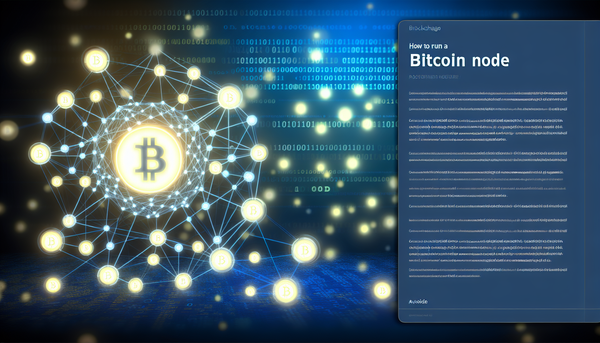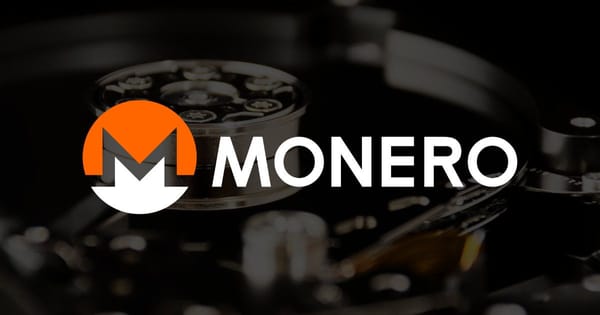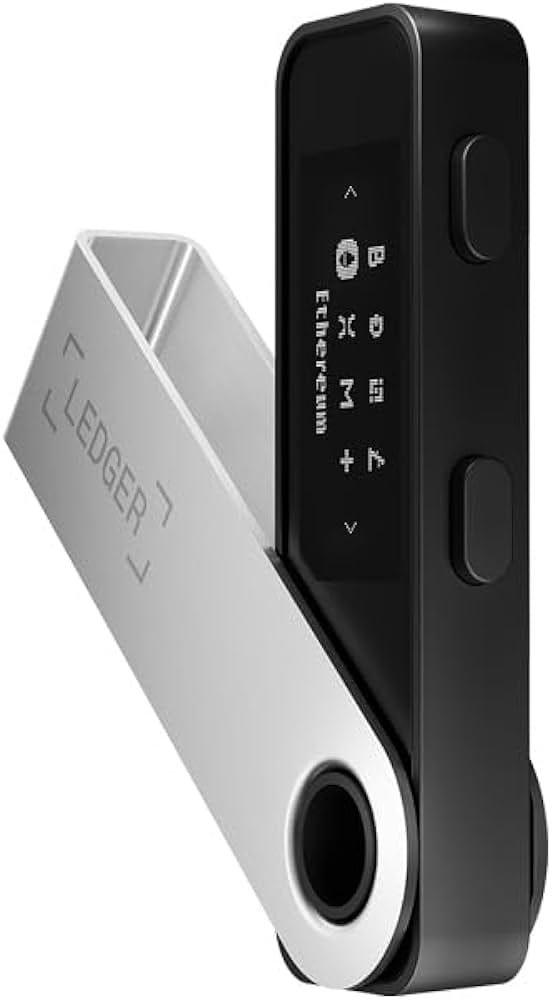Buying Monero Privately: A Beginner's Guide to P2P Exchanges

Monero (XMR) is a cryptocurrency known for its strong privacy features. Unlike some other cryptocurrencies, Monero is designed to keep your transactions confidential, making it a popular choice for those who value financial privacy. If you're looking to buy Monero, you might have heard about different ways to do it, including using peer-to-peer (P2P) exchanges.
This guide will walk you through using P2P exchanges to buy Monero. We'll break down what P2P exchanges are, why you might choose them, how to use them safely, and compare them to more common centralized exchanges. We'll focus on keeping things simple and avoid getting bogged down in technical terms.
What are Peer-to-Peer (P2P) Cryptocurrency Exchanges?
Imagine a marketplace where you can directly trade with other people, without a middleman taking control of your funds. That's essentially what a P2P cryptocurrency exchange is. Instead of relying on a large company to facilitate your trades, you connect directly with individual buyers and sellers.
In a traditional, or centralized, exchange, you deposit your money or cryptocurrency with the exchange, and they handle matching buyers and sellers. Think of it like a stock exchange. P2P exchanges work differently. They provide a platform to connect buyers and sellers, but the actual trading happens directly between users. The platform usually acts as an intermediary to hold funds in escrow and ensure fair trades, but it doesn't take custody of your funds in the same way a centralized exchange does.
Think of it like buying something on a classifieds website, but with added security for cryptocurrency. You see listings from people selling Monero, or you can create your own listing to buy it. When you find a suitable offer, you agree to the terms and the platform helps facilitate the trade.
Why Choose P2P for Buying Monero?
There are several reasons why someone might choose a P2P exchange to buy Monero, especially compared to using a centralized exchange:
- Enhanced Privacy: One of the biggest draws of Monero itself is privacy, and P2P exchanges can often align with this ethos. While some P2P platforms may still require some level of identification, many offer options for more private transactions than fully regulated centralized exchanges that often demand extensive KYC (Know Your Customer) verification. For users prioritizing privacy, this can be a significant advantage.
- Greater Control: In P2P trading, you have more control over the process. You choose who you trade with, the payment methods you use, and often you can negotiate terms directly with the other party. This contrasts with centralized exchanges where you're often limited to the exchange's set rules and processes.
- Wider Range of Payment Methods: P2P platforms typically support a much wider variety of payment methods compared to centralized exchanges. You might find options like bank transfers, cash in person, PayPal, gift cards, and various online payment systems. This can be especially useful if you prefer methods not commonly supported by traditional exchanges or if you are in a region where certain payment methods are more readily available.
- Potentially Lower Fees: While not always guaranteed, P2P exchanges can sometimes offer lower fees compared to centralized exchanges. The platform's fees are often structured differently, and you might be able to find trades with very low or even zero platform fees, though individual traders may factor fees into their pricing.
- Access to Monero in Specific Locations: In some regions, access to centralized cryptocurrency exchanges might be limited or restricted. P2P platforms can provide a valuable alternative, allowing users to buy and sell Monero where centralized options are less accessible.
Security Considerations When Using P2P Exchanges
While P2P exchanges offer benefits, it's crucial to be aware of the security risks involved. Trading directly with individuals always carries some level of risk, and you need to be cautious to protect yourself from scams and fraud. Here are some key security considerations and how to stay safe:
- Scams and Fraud: Unfortunately, scams are present in all areas of finance, and P2P crypto trading is no exception. Common scams include:
- Fake Proof of Payment: A seller might send you a fake screenshot or notification claiming they've sent payment when they haven't.
- Chargebacks: If you sell Monero and receive payment through a reversible method like PayPal, the buyer could potentially initiate a chargeback after you've already sent the Monero, effectively getting the Monero for free.
- Impersonation: Scammers might impersonate reputable traders or platform staff to trick you.
- Escrow Services are Essential: Reputable P2P platforms utilize escrow services. Escrow is like a neutral third party that holds the cryptocurrency or funds until both parties in a trade have fulfilled their obligations.
- For Buyers: When you initiate a trade to buy Monero, the seller's Monero is placed in escrow. Once you send payment and mark the trade as paid, the seller confirms receipt. Only then is the Monero released from escrow to your wallet.
- For Sellers: When you sell Monero, you deposit your Monero into escrow. Once the buyer sends payment and you confirm receipt, the escrow releases the Monero to the buyer.
- Always use platforms with escrow! Trading directly without escrow is extremely risky and should be avoided, especially as a beginner.
- Reputation and Verification Systems: Good P2P platforms have reputation systems and user verification.
- Trader Reputation: Look for traders with a high number of successful trades and positive feedback scores. Avoid trading with new users with no or negative feedback.
- Verification Levels: Some platforms have user verification levels. While not always a guarantee of safety, verified users have generally provided some form of identification to the platform, which can add a layer of security.
- Strong Passwords and 2FA: Just like with any online account holding financial value, use strong, unique passwords for your P2P exchange accounts and enable two-factor authentication (2FA). 2FA adds an extra layer of security by requiring a code from your phone or another device in addition to your password to log in.
- Be Wary of "Too Good to Be True" Offers: If a price seems significantly lower than market value, it's likely a scam. Be cautious of unusually cheap offers.
- Communicate Within the Platform: Keep all communication related to trades within the P2P platform's messaging system. Avoid communicating outside of the platform, as this can make it harder to resolve disputes if something goes wrong.
- Understand the Platform's Dispute Resolution Process: Familiarize yourself with the platform's dispute resolution process before you start trading. Know how to open a dispute if you encounter a problem and what evidence you'll need to provide.
- Start Small: When you're new to P2P trading, start with small trades to get comfortable with the process and the platform. Don't risk large amounts until you have experience and confidence.
P2P vs. Centralized Exchanges: Fees and Transaction Speeds
Let's compare P2P exchanges to centralized exchanges in terms of fees and transaction speeds:
Fees:
- Centralized Exchanges: Typically charge fees for trading (buying and selling) and often for withdrawals. Fees can vary depending on the exchange, your trading volume, and the specific cryptocurrency.
- P2P Exchanges: Platform fees on P2P exchanges can sometimes be lower than centralized exchanges, and some platforms even advertise zero fees for basic trading. However, individual traders may build fees into their pricing. It's important to compare the total cost, including any platform fees and the trader's asking price.
Transaction Speeds:
- Centralized Exchanges: Transactions on centralized exchanges are generally quite fast, especially for popular cryptocurrencies like Bitcoin or Ethereum. Deposits and withdrawals can sometimes take longer depending on network congestion and the exchange's processing times.
- P2P Exchanges: Transaction speeds on P2P exchanges can vary more. The speed depends on the payment method chosen and the responsiveness of the trader you're dealing with. Some payment methods, like instant bank transfers, can be very quick. Others, like international bank transfers, can take longer. The trader's responsiveness in confirming payment and releasing Monero from escrow also affects speed. While P2P can be fast, it's not always as consistently quick as a centralized exchange for simple trades.
Summary:
| Feature | Centralized Exchanges | P2P Exchanges |
|---|---|---|
| Fees | Can be moderate | Potentially lower |
| Speed | Generally fast | Variable, can be fast |
| Privacy | Lower, KYC required | Potentially higher |
| Control | Less user control | More user control |
| Payment Methods | Limited | Wider range |
| Risk | Exchange risk, hacking | Scam risk, counterparty risk |
Reputable P2P Marketplaces for Monero
When choosing a P2P platform for Monero, it's vital to select reputable and established marketplaces. Here are a few examples of platforms where you can often find Monero being traded P2P:
- LocalMonero: As the name suggests, LocalMonero is specifically focused on Monero P2P trading. It's a well-known and respected platform with a strong focus on privacy and security. LocalMonero offers escrow services, a reputation system, and various payment methods. It is often considered a go-to platform for P2P Monero trading.
- Bisq: Bisq is a decentralized, open-source P2P exchange that supports Monero and other cryptocurrencies. It's known for its privacy-focused approach and does not require KYC. Bisq uses Tor for anonymity and offers a robust escrow system. It's a more technically oriented platform, but a good option for those seeking maximum decentralization and privacy.
- Hodl Hodl: Hodl Hodl is another non-custodial P2P Bitcoin (and sometimes Monero) exchange. "Non-custodial" means the platform never controls your funds directly; they are held in multi-signature escrow. Hodl Hodl is known for its security and transparency. While primarily focused on Bitcoin, you might find Monero offers there as well.
Important Note: The cryptocurrency P2P exchange landscape can change, and the availability of Monero trading on specific platforms may vary. Always do your own research and due diligence before using any P2P platform. Check platform reviews, security features, and community feedback.
(This video provides a review of LocalMonero, a popular P2P platform for trading Monero and can give you a better visual understanding of how such platforms work.)
Practical Tips for Buying Monero on P2P Exchanges
Here are some practical steps and tips to guide you through buying Monero on a P2P exchange:
- Choose a Reputable Platform: Select a platform like LocalMonero, Bisq, or Hodl Hodl (if they offer Monero) based on your needs and research. Prioritize platforms with strong security features, escrow, and good reputations.
- Create an Account and Secure It: Sign up for an account on your chosen platform. Use a strong, unique password and enable two-factor authentication (2FA) immediately.
- Browse Offers or Create Your Own:
- Browse Offers: Look through the available "buy" offers for Monero. You'll see details like the price per XMR, payment methods accepted, and the trader's reputation.
- Create Your Own Offer: Alternatively, you can create your own "buy" offer, specifying the price you're willing to pay, your preferred payment method, and other terms.
- Evaluate Trader Reputation: When browsing offers, carefully check the trader's reputation score, number of trades, and feedback. Choose traders with a high number of successful trades and positive feedback.
- Select a Payment Method: Choose a payment method that is convenient for you and offered by the seller. Be aware of the risks associated with different payment methods (e.g., reversible payments).
- Initiate the Trade and Review Terms: Once you find a suitable offer, initiate the trade. Carefully review the trade terms and conditions set by the seller.
- Send Payment: Follow the seller's instructions and send the payment using your chosen method. Crucially, mark the trade as "paid" on the platform only after you have actually sent the payment.
- Seller Confirms Payment and Releases Monero: The seller will verify that they have received your payment. Once confirmed, they will release the Monero from escrow to your platform wallet.
- Withdraw Monero to Your Personal Wallet: For security and control, it's best to withdraw your Monero from the platform's wallet to your own personal Monero wallet as soon as possible.

Example Scenario (Using a hypothetical P2P platform):
Let's say you're using a platform like LocalMonero. You want to buy $100 worth of Monero using a bank transfer.
- You log into LocalMonero and go to the "Buy Monero" section.
- You filter offers by payment method and location (if needed).
- You see an offer from a trader named "SecureTrader123" with a 99% positive feedback rating from 500+ trades. They are selling XMR at a price slightly above the market rate but accept bank transfers.
- You click on their offer and see the details. The minimum trade amount is $50, and the maximum is $200. This fits your needs.
- You initiate a trade for $100.
- The platform provides you with SecureTrader123's bank account details for the transfer. The Monero equivalent of $100 is placed in escrow.
- You make the bank transfer for $100.
- You go back to the platform and mark the trade as "paid."
- SecureTrader123 receives a notification and checks their bank account. They confirm they received the $100.
- SecureTrader123 releases the Monero from escrow.
- The Monero is now in your wallet on the P2P platform.
- You withdraw the Monero to your personal Monero wallet.
Conclusion: P2P Trading for Monero - Privacy and Responsibility
P2P cryptocurrency exchanges offer a valuable alternative for buying Monero, especially if you prioritize privacy, control, and a wider range of payment options. They can sometimes offer lower fees than centralized exchanges. However, it's essential to understand the security risks involved and take necessary precautions.
By choosing reputable platforms, using escrow services, carefully evaluating traders, and following safe trading practices, you can navigate the P2P world and acquire Monero in a manner that aligns with your privacy preferences. Remember to always prioritize security and start with small trades as you learn.

P2P trading empowers individuals to participate directly in the cryptocurrency market, offering a decentralized and often more private way to acquire Monero. With careful research and responsible practices, you can confidently use P2P exchanges to buy Monero and take control of your financial privacy.




